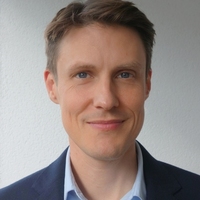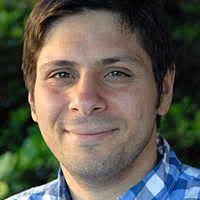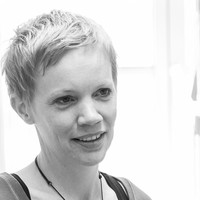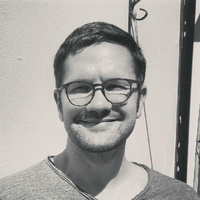
Yannik Porsché
My research focuses on social interactions in institutional contexts of educational work. I have conducted empirical studies in museums, the police/security authorities, and social work.
Currently, I advise accompanying research on political education, extremism prevention and integration work at the German Federal Office of Family Affairs and Civil Society Functions (BAFzA). From 2017-2023, I was employed as a postdoctoral researcher at the Sociology department of the Bundeswehr University Munich, which concentrates on everyday sociology of globalisation. Here, I conducted research on institutional work dealing with extremism and deradicalisation in civil and military contexts.
Previously, I worked at the Johann Wolfgang Goethe-University Frankfurt and the Humboldt University of Berlin in a research project on social, cultural and organisational forms of knowledge generation and circulation in police work on crime prevention (see https://www.euroethno.hu-berlin.de/de/archiv/forschungsprojekte/codisp, directed by Thomas Scheffer).
I completed my PhD and was a lecturer of Social Sciences at the Sociology Department of the Johannes Gutenberg-University Mainz and the University of Burgundy in Dijon (supervised by Johannes Angermüller and Jean-Louis Tornatore). My PhD project dealt with museum exhibitions about public representations of immigrants in France and Germany. I studied Philosophy at the University of Stuttgart and the University of Paris 8 and Psychology at the University of Edinburgh.
In the analysis of governmental and educational institutions, I combine methods of ethnomethodological interaction analysis, poststructural discourse analysis and analytical ethnography in a theory-oriented, microsociological contextualisation analysis. In ethnographic focus groups, I provide a reflexive forum in which I discuss my observations with the practitioners who I accompanied during their work.
Supervisors: Prof. Johannes Angermüller, Prof. Jean-Louis Tornatore, Prof. Thomas Scheffer, Prof. Teresa Koloma Beck, and Vertr. Prof. Dr. Endre Dányi
Currently, I advise accompanying research on political education, extremism prevention and integration work at the German Federal Office of Family Affairs and Civil Society Functions (BAFzA). From 2017-2023, I was employed as a postdoctoral researcher at the Sociology department of the Bundeswehr University Munich, which concentrates on everyday sociology of globalisation. Here, I conducted research on institutional work dealing with extremism and deradicalisation in civil and military contexts.
Previously, I worked at the Johann Wolfgang Goethe-University Frankfurt and the Humboldt University of Berlin in a research project on social, cultural and organisational forms of knowledge generation and circulation in police work on crime prevention (see https://www.euroethno.hu-berlin.de/de/archiv/forschungsprojekte/codisp, directed by Thomas Scheffer).
I completed my PhD and was a lecturer of Social Sciences at the Sociology Department of the Johannes Gutenberg-University Mainz and the University of Burgundy in Dijon (supervised by Johannes Angermüller and Jean-Louis Tornatore). My PhD project dealt with museum exhibitions about public representations of immigrants in France and Germany. I studied Philosophy at the University of Stuttgart and the University of Paris 8 and Psychology at the University of Edinburgh.
In the analysis of governmental and educational institutions, I combine methods of ethnomethodological interaction analysis, poststructural discourse analysis and analytical ethnography in a theory-oriented, microsociological contextualisation analysis. In ethnographic focus groups, I provide a reflexive forum in which I discuss my observations with the practitioners who I accompanied during their work.
Supervisors: Prof. Johannes Angermüller, Prof. Jean-Louis Tornatore, Prof. Thomas Scheffer, Prof. Teresa Koloma Beck, and Vertr. Prof. Dr. Endre Dányi
less
Related Authors
Felicitas Macgilchrist
Georg Eckert Institute
Johannes Angermuller
University of Warwick
Martin Saar
Goethe-Universität Frankfurt am Main
Philipp Dreesen
Zurich University of Applied Sciences
Ida Hekmat
University of Franche-Comte
InterestsView All (121)










Uploads
Books by Yannik Porsché
For a book review see: https://www.researchgate.net/publication/364652714_Review_of_Institutionality_Studies_of_Discursive_and_Material_Re-ordering_-Edited_by_Yannik_Porsche_Ronny_Scholz_Jaspal_Naveel_Singh
-----------------------------------------------------------------------------------------------------------------------------------------------------------------------------------------------------
“What do people do in museums? Surrounded by exhibits, speaking to tour-guides or reading a catalogue and press reviews, they engage in meaning-making practices. This study of a French-German exhibition makes a powerful case for combining interaction analysis and ethnography in order to carry out empirically and
theoretically insightful research on public discourse – a must-read for students and researchers interested in qualitative approaches to Discourse Studies.” (Professor Johannes Angermuller, Centre for Applied Linguistics, University of Warwick, UK)
-----------------------------------------------------------------------------------------------------------------------------------------------------------------------------------------------------
“Through three museums presenting the same-but-very-different exhibition on immigration, Yannik Porsché guides us on a fascinating journey from Paris to Berlin. The museum institutions not only produce representations of immigrants, but also tell us a great deal about those who do the representing. This study shows how, as
epistemic spaces, museums orchestrate and discipline discourse about their objects. Moreover, it reveals how, as interactional spaces, they – sometimes unwillingly – enable other voices and bodies to speak through and in them. An important book!” (Professor Lorenza Mondada, Chair of general linguistics and French linguistics,
University of Basel, Switzerland)
-----------------------------------------------------------------------------------------------------------------------------------------------------------------------------------------------------
“In this highly original comparative study, Yannik Porsché opens a mysterious black box: that of the institutional epistemics of how museums construct knowledge. The study is a much needed corrective to our understanding of museums as a neutral storage space for collective memories—and a fantastic extension of the notion of
epistemic cultures to the productive space at the intersection of the museum, the media and science.” (Professor Karin Knorr Cetina, Chair of the Department of Sociology, University of Chicago, USA)
-----------------------------------------------------------------------------------------------------------------------------------------------------------------------------------------------------
For full book reviews see:
Kantara, A. (2019). Book review: Yannik Porsché, Public Representations of Immigrants in Museums: Exhibition and Exposure in France and Germany. Discourse & Society, 30(5), 542–544. https://doi.org/10.1177/0957926519859748c
Kruber, R. (2022) Book Review: Yannik Porsché: Public Representations of Immigrants in Museums: Exhibition and Exposure in France and Germany. Slovo a slovesnost. 83 (1). 66-70. https://www.ceeol.com/search/article-detail?id=1028293
Papers by Yannik Porsché
In diesem Beitrag untersuche ich Ziele und Methoden von Praktiken der Extremismusprävention. In meiner Arbeitsplatzstudie eines Vereins, der einerseits in Kooperation mit der Polizei Radikalisierungssimulationen in Schulen durchführt und andererseits Mentoring von Menschen mit Fluchterfahrung in Deutschland anbietet, gehe ich aus einer trans-sequentiellen Perspektive der Frage nach, wie Arbeitsschritte aufeinander aufbauen und an welchen Stellen Ausrichtungen der Arbeit auf unterschiedliche Ziele und Zielgruppen in Konflikt geraten. Die ethnographische Interaktionsanalyse zeigt, wie über mehrere Situationen hinweg und je nach institutionellem Ansatz, in Präventionsmaßnahmen an persönlicher Entwicklung, normativen Einstellungen und sozialen Beziehungen gearbeitet wird. Dabei changiert die Kategorisierung der Zielgruppen je nach Ansatz, Publikum und Zeitpunkt im Arbeitsverlauf zwischen „Täter:innen“ und „Opfern“. Ich diskutiere, wie in der Arbeitspraxis um grundsätzliche Fragen der Zielgruppenkonstruktion, der (Erziehungs-)Ziele und Arbeitsmethoden gerungen wird.
In this introduction we outline theoretical and methodological approaches to discursive and material dimensions of institutional practices and propose that they are consequential in terms of the (re-)ordering of meaning and power relations in society. We introduce institutionality as a perspective that allows us to explore how institutions are defined, represented and become relevant and powerful in the public sphere. We argue for the importance of this perspective by firstly noting the omnipresence of institutions in social and cultural life and the many ways they matter to people. Secondly, we define institutionality as the practices that bring into being, characterise, enact, transform and resist institutions and outline how they enable and constrain peoples’ lives, and order discursive and material meanings. We suggest that empirical analyses of the social, embodied, symbolic and material modalities of institutionality and of processes of the making and unmaking of institutions, i.e. their (re-/de-)institutionalisation, reveal that institutions are both powerful and fragile. Thirdly, we propose that institutionality can be thought of as a confluence of several interrelated tensions regarding an institution’s ontology—specifically its continuity, scope and power relations. Fourthly, we situate institutionality in the context of research on institutions, briefly introduce the 20 chapters we have collected in this volume, and point out how each of them engages institutionality. The volume is structured in five parts: I. Workplace Interaction, II. Bodies, Architecture and Space, III. Mass Media Representations, IV. Organisational Publicity, V. Legitimising Knowledge and Power. In the conclusion, we discuss how contributions to this volume advance our understanding of institutionality.
-----------------------------------------------------------------------------------------------------------------------------------For book reviews see:
https://www.tandfonline.com/doi/abs/10.1080/13642537.2022.2143067?src=&journalCode=rejp20 (or: https://www.researchgate.net/publition/364652714_Review_of_Institutionality_Studies_of_Discursive_and_Material_Re-ordering_-Edited_by_Yannik_Porsche_Ronny_Scholz_Jaspal_Naveel_Singh)
AND
https://www.tandfonline.com/doi/full/10.1080/17447143.2023.2209053
Based on a close reading of the contributions to this volume, this conclusion aims to contribute to the theorisation of institutional order. Employing discourse analytical and ethnographic methodologies, we understand institutional order as an outcome of habitual interaction practices involving a reimagining and transforming of formal or informal rules and constraints. Moreover, according to our understanding of institutionality, these habitual practices are exposed to ever-changing socio-discursive and socio-material contexts that participants of interaction make relevant. We advocate paying attention to the fluidity, volatility, fragility and ambiguity of order, and consequently to its claims to authority. Our review shows how the contributions to this volume shed light on fundamental relations between structure and agency, stability and transformation and the global and the local.
-----------------------------------------------------------------------------------------------------------------------------------For a book reviews see:
https://www.tandfonline.com/doi/abs/10.1080/13642537.2022.2143067?src=&journalCode=rejp20 (or: https://www.researchgate.net/publition/364652714_Review_of_Institutionality_Studies_of_Discursive_and_Material_Re-ordering_-Edited_by_Yannik_Porsche_Ronny_Scholz_Jaspal_Naveel_Singh)
AND
https://www.tandfonline.com/doi/full/10.1080/17447143.2023.2209053
The institutional format of educational training courses in universal extremism prevention entails the promise to counter a rise of different kinds of extremism with targeted interventions. I analyse how an NGO, in cooperation with the police, in a game of three hours simulates processes of radicalisation in school classes. In a reflection of the game the NGO explains the mechanisms of radicalisation with the aim to make participants resilient to radicalisation in real life. I ask who the NGO considers as people at risk and how the prevention measure attempts to change different audiences. Theoretically, I suggest that a constructionist-ethnomethodological perspective on institutional (re-)categorisation of people can be fruitfully complemented by an undogmatic realist one. Methods of ethnography and conversation analysis bring into view how the NGO adapts the prevention measure that was designed for pupils raised in Germany when playing it with refugees. NGO staff consider refugees’ experiences and the focus shifts from generating unsettling experiences when participants realise how they got manipulated in the game to activities typical of integration classes. Hence, not only does the course have an impact on its participants but the different audiences also alter the course. A discussion reveals contradictions in expectations that prevention should provide a standardised and soft quick fix to complex and dynamic societal problems.
-----------------------------------------------------------------------------------------------------------------------------------For book reviews see:
https://www.tandfonline.com/doi/abs/10.1080/13642537.2022.2143067?src=&journalCode=rejp20 (or: https://www.researchgate.net/publition/364652714_Review_of_Institutionality_Studies_of_Discursive_and_Material_Re-ordering_-Edited_by_Yannik_Porsche_Ronny_Scholz_Jaspal_Naveel_Singh)
AND
https://www.tandfonline.com/doi/full/10.1080/17447143.2023.2209053
This paper traces how media dialogical networks are generated in interactions across different media. Reviews of a museum exhibition on public representations of immigrants in France and Germany serve as an example to follow connections between social interactions during guided tours in the exhibition space, comments written in the exhibition’s guestbook and reviews of the exhibition published in newspapers. This contribution exemplifies how a contextualisation analysis allows us to disassemble how multiple voices and references are orchestrated in sequentially organised enunciations. The analysis shows, firstly, how journalists, museum staff, and visitors engage in face-to-face and written dialogues in which they refer to each other beyond co-present situations to politically position themselves, the museums and newspapers in relation to governmental politics; secondly, how members engage in disputes about networks’ normative orders; and thirdly how multiple selection practices fundamentally change the meaning of enunciations in translations between modalities of the museum space and the mass media. Allegations of censorship give rise to professionals and laypeople in their reviews generating alliances and oppositions on the question how independent museums should be from the government.
Open-access here: https://doi.org/10.1016/j.dcm.2022.100579
https://doi.org/10.1177/1461445620942908
https://www.palgrave.com/gp/book/9783030346706
https://link.springer.com/article/10.1007/s41059-017-0026-7
der Polizei einen friedlichen Ablauf der Großveranstaltung unterstützen. Darüber hinaus wird in der Projektarbeit eine Gruppe aus Polizei, Jugendeinrichtung und einzelnen Jugendlichen sozialisiert, die am darauffolgenden Jahr die Vorbereitungsorganisation unterstützt.
For a book review see: https://www.researchgate.net/publication/364652714_Review_of_Institutionality_Studies_of_Discursive_and_Material_Re-ordering_-Edited_by_Yannik_Porsche_Ronny_Scholz_Jaspal_Naveel_Singh
-----------------------------------------------------------------------------------------------------------------------------------------------------------------------------------------------------
“What do people do in museums? Surrounded by exhibits, speaking to tour-guides or reading a catalogue and press reviews, they engage in meaning-making practices. This study of a French-German exhibition makes a powerful case for combining interaction analysis and ethnography in order to carry out empirically and
theoretically insightful research on public discourse – a must-read for students and researchers interested in qualitative approaches to Discourse Studies.” (Professor Johannes Angermuller, Centre for Applied Linguistics, University of Warwick, UK)
-----------------------------------------------------------------------------------------------------------------------------------------------------------------------------------------------------
“Through three museums presenting the same-but-very-different exhibition on immigration, Yannik Porsché guides us on a fascinating journey from Paris to Berlin. The museum institutions not only produce representations of immigrants, but also tell us a great deal about those who do the representing. This study shows how, as
epistemic spaces, museums orchestrate and discipline discourse about their objects. Moreover, it reveals how, as interactional spaces, they – sometimes unwillingly – enable other voices and bodies to speak through and in them. An important book!” (Professor Lorenza Mondada, Chair of general linguistics and French linguistics,
University of Basel, Switzerland)
-----------------------------------------------------------------------------------------------------------------------------------------------------------------------------------------------------
“In this highly original comparative study, Yannik Porsché opens a mysterious black box: that of the institutional epistemics of how museums construct knowledge. The study is a much needed corrective to our understanding of museums as a neutral storage space for collective memories—and a fantastic extension of the notion of
epistemic cultures to the productive space at the intersection of the museum, the media and science.” (Professor Karin Knorr Cetina, Chair of the Department of Sociology, University of Chicago, USA)
-----------------------------------------------------------------------------------------------------------------------------------------------------------------------------------------------------
For full book reviews see:
Kantara, A. (2019). Book review: Yannik Porsché, Public Representations of Immigrants in Museums: Exhibition and Exposure in France and Germany. Discourse & Society, 30(5), 542–544. https://doi.org/10.1177/0957926519859748c
Kruber, R. (2022) Book Review: Yannik Porsché: Public Representations of Immigrants in Museums: Exhibition and Exposure in France and Germany. Slovo a slovesnost. 83 (1). 66-70. https://www.ceeol.com/search/article-detail?id=1028293
In diesem Beitrag untersuche ich Ziele und Methoden von Praktiken der Extremismusprävention. In meiner Arbeitsplatzstudie eines Vereins, der einerseits in Kooperation mit der Polizei Radikalisierungssimulationen in Schulen durchführt und andererseits Mentoring von Menschen mit Fluchterfahrung in Deutschland anbietet, gehe ich aus einer trans-sequentiellen Perspektive der Frage nach, wie Arbeitsschritte aufeinander aufbauen und an welchen Stellen Ausrichtungen der Arbeit auf unterschiedliche Ziele und Zielgruppen in Konflikt geraten. Die ethnographische Interaktionsanalyse zeigt, wie über mehrere Situationen hinweg und je nach institutionellem Ansatz, in Präventionsmaßnahmen an persönlicher Entwicklung, normativen Einstellungen und sozialen Beziehungen gearbeitet wird. Dabei changiert die Kategorisierung der Zielgruppen je nach Ansatz, Publikum und Zeitpunkt im Arbeitsverlauf zwischen „Täter:innen“ und „Opfern“. Ich diskutiere, wie in der Arbeitspraxis um grundsätzliche Fragen der Zielgruppenkonstruktion, der (Erziehungs-)Ziele und Arbeitsmethoden gerungen wird.
In this introduction we outline theoretical and methodological approaches to discursive and material dimensions of institutional practices and propose that they are consequential in terms of the (re-)ordering of meaning and power relations in society. We introduce institutionality as a perspective that allows us to explore how institutions are defined, represented and become relevant and powerful in the public sphere. We argue for the importance of this perspective by firstly noting the omnipresence of institutions in social and cultural life and the many ways they matter to people. Secondly, we define institutionality as the practices that bring into being, characterise, enact, transform and resist institutions and outline how they enable and constrain peoples’ lives, and order discursive and material meanings. We suggest that empirical analyses of the social, embodied, symbolic and material modalities of institutionality and of processes of the making and unmaking of institutions, i.e. their (re-/de-)institutionalisation, reveal that institutions are both powerful and fragile. Thirdly, we propose that institutionality can be thought of as a confluence of several interrelated tensions regarding an institution’s ontology—specifically its continuity, scope and power relations. Fourthly, we situate institutionality in the context of research on institutions, briefly introduce the 20 chapters we have collected in this volume, and point out how each of them engages institutionality. The volume is structured in five parts: I. Workplace Interaction, II. Bodies, Architecture and Space, III. Mass Media Representations, IV. Organisational Publicity, V. Legitimising Knowledge and Power. In the conclusion, we discuss how contributions to this volume advance our understanding of institutionality.
-----------------------------------------------------------------------------------------------------------------------------------For book reviews see:
https://www.tandfonline.com/doi/abs/10.1080/13642537.2022.2143067?src=&journalCode=rejp20 (or: https://www.researchgate.net/publition/364652714_Review_of_Institutionality_Studies_of_Discursive_and_Material_Re-ordering_-Edited_by_Yannik_Porsche_Ronny_Scholz_Jaspal_Naveel_Singh)
AND
https://www.tandfonline.com/doi/full/10.1080/17447143.2023.2209053
Based on a close reading of the contributions to this volume, this conclusion aims to contribute to the theorisation of institutional order. Employing discourse analytical and ethnographic methodologies, we understand institutional order as an outcome of habitual interaction practices involving a reimagining and transforming of formal or informal rules and constraints. Moreover, according to our understanding of institutionality, these habitual practices are exposed to ever-changing socio-discursive and socio-material contexts that participants of interaction make relevant. We advocate paying attention to the fluidity, volatility, fragility and ambiguity of order, and consequently to its claims to authority. Our review shows how the contributions to this volume shed light on fundamental relations between structure and agency, stability and transformation and the global and the local.
-----------------------------------------------------------------------------------------------------------------------------------For a book reviews see:
https://www.tandfonline.com/doi/abs/10.1080/13642537.2022.2143067?src=&journalCode=rejp20 (or: https://www.researchgate.net/publition/364652714_Review_of_Institutionality_Studies_of_Discursive_and_Material_Re-ordering_-Edited_by_Yannik_Porsche_Ronny_Scholz_Jaspal_Naveel_Singh)
AND
https://www.tandfonline.com/doi/full/10.1080/17447143.2023.2209053
The institutional format of educational training courses in universal extremism prevention entails the promise to counter a rise of different kinds of extremism with targeted interventions. I analyse how an NGO, in cooperation with the police, in a game of three hours simulates processes of radicalisation in school classes. In a reflection of the game the NGO explains the mechanisms of radicalisation with the aim to make participants resilient to radicalisation in real life. I ask who the NGO considers as people at risk and how the prevention measure attempts to change different audiences. Theoretically, I suggest that a constructionist-ethnomethodological perspective on institutional (re-)categorisation of people can be fruitfully complemented by an undogmatic realist one. Methods of ethnography and conversation analysis bring into view how the NGO adapts the prevention measure that was designed for pupils raised in Germany when playing it with refugees. NGO staff consider refugees’ experiences and the focus shifts from generating unsettling experiences when participants realise how they got manipulated in the game to activities typical of integration classes. Hence, not only does the course have an impact on its participants but the different audiences also alter the course. A discussion reveals contradictions in expectations that prevention should provide a standardised and soft quick fix to complex and dynamic societal problems.
-----------------------------------------------------------------------------------------------------------------------------------For book reviews see:
https://www.tandfonline.com/doi/abs/10.1080/13642537.2022.2143067?src=&journalCode=rejp20 (or: https://www.researchgate.net/publition/364652714_Review_of_Institutionality_Studies_of_Discursive_and_Material_Re-ordering_-Edited_by_Yannik_Porsche_Ronny_Scholz_Jaspal_Naveel_Singh)
AND
https://www.tandfonline.com/doi/full/10.1080/17447143.2023.2209053
This paper traces how media dialogical networks are generated in interactions across different media. Reviews of a museum exhibition on public representations of immigrants in France and Germany serve as an example to follow connections between social interactions during guided tours in the exhibition space, comments written in the exhibition’s guestbook and reviews of the exhibition published in newspapers. This contribution exemplifies how a contextualisation analysis allows us to disassemble how multiple voices and references are orchestrated in sequentially organised enunciations. The analysis shows, firstly, how journalists, museum staff, and visitors engage in face-to-face and written dialogues in which they refer to each other beyond co-present situations to politically position themselves, the museums and newspapers in relation to governmental politics; secondly, how members engage in disputes about networks’ normative orders; and thirdly how multiple selection practices fundamentally change the meaning of enunciations in translations between modalities of the museum space and the mass media. Allegations of censorship give rise to professionals and laypeople in their reviews generating alliances and oppositions on the question how independent museums should be from the government.
Open-access here: https://doi.org/10.1016/j.dcm.2022.100579
https://doi.org/10.1177/1461445620942908
https://www.palgrave.com/gp/book/9783030346706
https://link.springer.com/article/10.1007/s41059-017-0026-7
der Polizei einen friedlichen Ablauf der Großveranstaltung unterstützen. Darüber hinaus wird in der Projektarbeit eine Gruppe aus Polizei, Jugendeinrichtung und einzelnen Jugendlichen sozialisiert, die am darauffolgenden Jahr die Vorbereitungsorganisation unterstützt.
Fallstudien kreisen dann um Fragen, wie diese: Welche “Objekte” taugen eher zum Konflikt als andere? Was sind die antagonistischen Positionen, die sich um einen Gegenstand versammeln? Wie ordnen die “Matters” die Konflikte in Zeit und Raum? Und welche Subjekt-Objekt-Relationen bilden sich im Zuge der Konfliktverläufe heraus? Mit dem Fokus auf die “contested matters” wollen wir versuchen, das konfliktsoziologische Potential der Feld- und Diskursforschung zu stärken und zu heben. Da “matters” nicht nur Objekte oder Gegenstände bezeichnen, sondern auch Angelegenheiten von Relevanz, stellt sich außerdem die Frage: Wie bestimmt sich in den Studien, was als relevant gilt? Welche Rolle kommt dabei den Forschenden, welche Rolle den Konfliktparteien zu?
Feld- und Diskursforschungen eignen sich hervorragend, um soziale Konflikte in ihrer Formierung zu rekonstruieren. Sie erlauben es, situierte Spannungen, Kämpfe und Widerstände mit ihren weitreichenden diskursiven Überführungen in öffentlichen Arenen nachzuvollziehen. Investiert werden dabei Taktiken und Strategien genauso wie persönliche Einsätze und Affizierungen. Praktisch relevant werden vor allem Problemzuschnitte an den “contested matters”, die diese mal als eher persönliche und lokale, mal als grundlegende und gesellschaftliche Fragen aufwerfen. An diesen Zuschnitten sind die Forschenden, je nach Aufmerksamkeit, die sie erfahren, nicht unbeteiligt: Sie werden zuweilen in Kämpfe um Deutungshoheit, in Problemdiagnosen und deren (unmöglicher) politischer Bearbeitung hineingezogen. Sie sind in manchen Fällen als Analysierende und als Betroffene gefragt, als Konfliktbeobachtende wie -partei. Letzteres sind sie gerade dort, wo etwa die Fähigkeit zur Forschung und die Ausübung der eigenen Profession (etwa in Fragen der Meinungs- und Wissenschaftsfreiheit oder der politischen Forschungsförderung), vom Ausgang der analysierten Konflikte abhängt. Konflikte können Ethnograph*innen unter Zugzwang setzen, sich für eine Seite stark zu machen. Auch kann die gemeinsame Bearbeitung von Konflikten in kollaborativen Forschungsdesigns Vertrauen aufbauen. Contested matters analysieren wir somit als Kämpfe, Probleme und Hürden, aber auch als produktive Gelegenheiten, die Menschen, Dinge und Diskurse zu Auseinandersetzung, Klärung und Innovation drängen.
Die Ad-hoc Gruppe führt Feld- und Diskursforschungen zusammen. “Contested matters” sind dafür prädestiniert, diskursanalytische Zugänge mit ethnographischer Arbeit zu kombinieren bzw. beide Seiten zu integrieren. Derart fokussieren sie Formationen ideologischer und materieller Kämpfe, bezogen auf die politischen Repräsentationen, die abverlangten Subjektivierungen, die aufgeworfenen Machtrelationen oder bezogen auf Prozesse des Ein- und Ausschlusses von Konfliktparteien. Analysen von verschränkten sozialen Interaktionen und Diskursprozessen oder von der analogen/digitalen Intermedialität und der Polyphonie der Konflikt-Accounts bieten zahlreiche Heuristiken, um die Komplexität von Kämpfen nachzuvollziehen und zu analysieren.
What can you expect?
In the three-day Summer School, you will acquire practical skills about specific ethnographic and discourse analytical methods, such as interviewing, participant observation, transcribing, coding, as well as writing fieldnotes and vignettes. We will also introduce you to several software packages that might assist you in doing your research. In addition, you will acquire theoretical skills that allow you to better situate discourse ethnographic methods within your approach or your disciplinary traditions and professional ambitions. In addition to advanced scholars sharing their theoretical insights and teaching practical competences we will reserve time for reflection sessions and open discussion fora in which you are invited to share experiences, point to potential problems and discuss possibilities for solving them. If you have already collected your own empirical material, you are most welcome to suggest samples for us to analyse or discuss together.
Confirmed teachers
• Dr Yalız Akbaba, Johannes Gutenberg University, Mainz
• Professor Jan Blommaert, Tilburg University
• Professor Endre Dányi, Bundeswehr University, Munich
• Dr Martina Kolanoski, Johann Wolfgang Goethe University, Frankfurt
• Professor Teresa Koloma Beck, Bundeswehr University, Munich
• Professor Felicitas Macgilchrist, Georg Eckert Institute for International Textbook Research, Braunschweig
• Dr Yannik Porsché, Bundeswehr University, Munich
• Dr Jaspal Naveel Singh, The University of Hong Kong
How to apply?
The DiscourseNet Summer School “Ethnography meets Discourse Analysis” is open to PhD and post-graduate students. If you would like to apply, please send a brief summary of your research project in English (max. 250 words) and a short biography (max. 100 words) by 29 February 2020 to yannik.porsche@unibw.de and singhjn@hku.hk.
More information:
https://discourseanalysis.net/en/dns6-discoursenet-summer-school-6-ethnography-meets-discourse-analysis?language_content_entity=en
We hope to see you in Tutzing!
Yannik Porsché and Jaspal Naveel Singh
What can you expect?
In the three-day Summer School, you will acquire practical skills about specific ethnographic and discourse analytical methods, such as interviewing, participant observation, transcribing, coding, as well as writing fieldnotes and vignettes. We will also introduce you to several software packages that might assist you in doing your research. In addition, you will acquire theoretical skills that allow you to better situate discourse ethnographic methods within your approach or your disciplinary traditions and professional ambitions. In addition to advanced scholars sharing their theoretical insights and teaching practical competences we will reserve time for reflection sessions and open discussion fora in which you are invited to share experiences, point to potential problems and discuss possibilities for solving them. If you have already collected your own empirical material, you are most welcome to suggest samples for us to analyse or discuss together.
Confirmed teachers
• Dr Yalız Akbaba, Johannes Gutenberg University, Mainz
• Professor Jan Blommaert, Tilburg University
• Professor Endre Dányi, Bundeswehr University, Munich
• Dr Martina Kolanoski, Johann Wolfgang Goethe University, Frankfurt
• Professor Teresa Koloma Beck, Bundeswehr University, Munich
• Professor Felicitas Macgilchrist, Georg Eckert Institute for International Textbook Research, Braunschweig
• Dr Yannik Porsché, Bundeswehr University, Munich
• Dr Jaspal Naveel Singh, The University of Hong Kong
How to apply?
The DiscourseNet Summer School “Ethnography meets Discourse Analysis” is open to PhD and post-graduate students. If you would like to apply, please send a brief summary of your research project in English (max. 250 words) and a short biography (max. 100 words) by 29 February 2020 to yannik.porsche@unibw.de and singhjn@hku.hk.
More information:
https://discourseanalysis.net/en/dns6-discoursenet-summer-school-6-ethnography-meets-discourse-analysis?language_content_entity=en
We hope to see you in Tutzing!
Yannik Porsché and Jaspal Naveel Singh
Discourse Studies cover a growing field of interdisciplinary research on meaning making practices, communicative activities and symbolic representations. Cultural studies, linguistics, media analysis, geography, and history, among others, highlight the role of texts, pictures and language in the constitution of truth and reality. Actor-oriented disciplines such as political science, sociology, pedagogy or economics and management studies are interested in the formation of subjectivities, identities and agencies. Focussing on the nexus of discourse, power and subjectivation this conference aims to bring different strands from the interdisciplinary field of Discourse Studies into dialogue.
The study of discourse pertains to various levels of language and society, ranging from everyday face-to-face interaction to societal relations and global communication. In the analysis of, for instance, the media, politics, economy, academia or law, issues of subjectivation, discourse and power are at stake when asking: Who has the capacity to dominate others? What technologies of power and exclusion are at work when people are defined and categorised in a certain manner? Which forms of legitimation account for dominant kinds of knowledges, subjectivities and institutions?
Numerous areas of research have broached the nexus of discourse, power and subjectivation in both theoretical and empirical terms. Studies in geography and critical cultural studies, for instance, have investigated the role of statistics and multimodal discourses by asking how normalizations are produced by demographic discourses. Media studies have analysed how knowledge gains legitimacy in language and multimodal communication in fields such as banking and politics. Political science points to processes of subjectivation, i.e. in ‘post-democracy’ when exploring the role of political responsibilities.
Sociologists have analysed hidden technologies of power through the formation of identity concepts in working relations, gender discourses and academic subjectivations. Discourse studies in economics and management show how certain hegemonic knowledges are naturalized and normalized. Educational studies use the subjectivation concept to study processes of learning, disciplining, and mechanisms of inclusion/exclusion in different contexts such as school, university and advanced training courses. Today, many other research projects are currently investigating more and more fields using concepts of discourse, power and subjectivation.
The aim of DiscourseNet 22 conference is to deepen and developing these research activities by discussing the relationship between discourse, power and subjectivation from theoretical as well as empirical viewpoints. Contributions from all academic disciplines and research topics are welcome.
Submissions of contributions and panels:
The languages of the conference are English and German.
Abstracts for contributions of no more than 200 words should be submitted by March 30, 2018. If you would like to propose a panel for the conference, please submit your panel proposal that includes the names, titles and a short abstract for each presentation until April 30, 2018.
email: dn22@sowi.uni-giessen.de